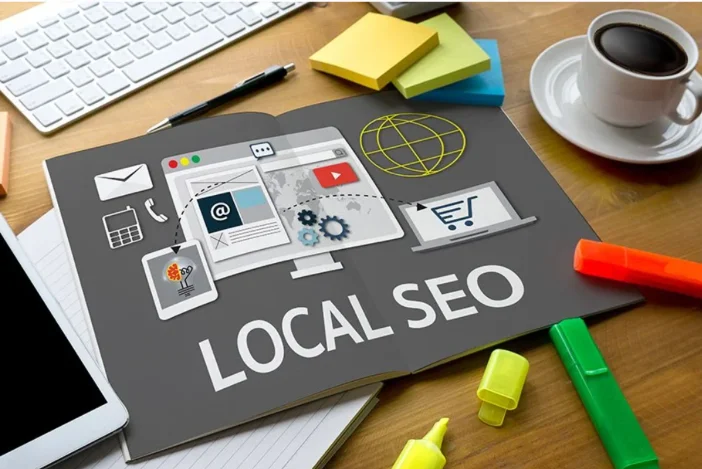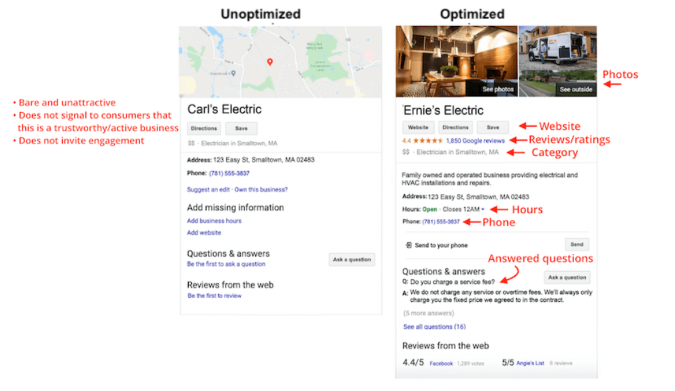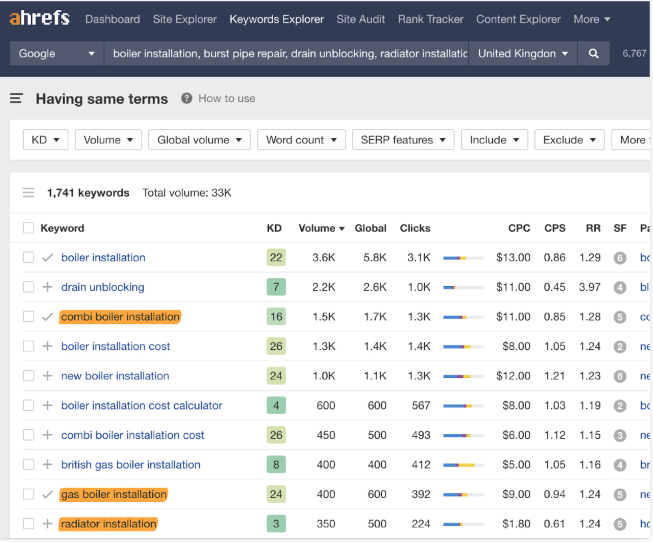SEO
Local SEO Strategies for Small Businesses: Boost Your Online Presence and Sales
Published

Imagine this: a potential customer is just around the corner, searching for a business like yours. But instead of finding you, they walk into your competitor’s shop. Why? Because your business isn’t showing up in local search results.
For small businesses, this scenario is all too common—and it’s costing you. In a world where 97% of people search online to find local services, mastering Local SEO is no longer optional—it’s essential. Unlike traditional SEO, Local SEO focuses on making sure your business appears front and center when someone nearby is looking for products or services like yours.
In this guide, we’ll dive deep into the actionable strategies that will transform how customers find you. Whether you’re just setting up your Google My Business profile or need tips on boosting online reviews, these tactics will help you dominate local search and drive real results. Ready to rise above the competition? Let’s get started.
1. What is Local SEO and Why is it Important?
When people search for products or services near them, they rely on local search results to make decisions. This is where Local SEO comes into play. Unlike traditional SEO, which focuses on improving your website’s ranking on a global or national scale, Local SEO ensures that your business appears when people nearby search for relevant offerings. In short, it helps your small business get discovered by those who are most likely to convert into customers.
Local SEO is essential because of how consumer behavior has shifted. Studies show that 46% of all Google searches have local intent. Whether someone is looking for a restaurant, a plumber, or a boutique, they often search for businesses in their immediate vicinity. Without a strong local SEO strategy, your business may be missing out on these potential customers. More importantly, local SEO gives you a competitive edge in your community by increasing your visibility in Google’s local pack, Google Maps, and organic search results.
2. Optimizing Google My Business Profile
Your Google My Business (GMB) profile is a vital tool for local SEO success. It serves as your digital storefront, providing essential information such as your location, business hours, contact details, and customer reviews. Optimizing your GMB profile not only improves your local rankings but also helps customers easily find and engage with your business online.
To fully optimize your GMB profile, start by ensuring all the information is accurate and up-to-date. Choose the correct business category, add high-quality images, and include relevant keywords in your business description. Encourage customers to leave reviews, and respond to them—whether they are positive or negative. The more active and complete your GMB profile is, the better your chances of ranking higher in local search results.
3. Local Keywords: How to Find and Use Them
To drive traffic through local SEO, you need to understand the importance of local keywords. These are specific search terms that include location-based phrases, such as “coffee shop near me” or “best dentist in [your city].” Using local keywords ensures that when potential customers search for services in your area, your business is more likely to appear.
Start by researching keywords that are relevant to your business and location. Tools like Google Keyword Planner or Ahrefs can help you identify high-traffic, location-based keywords. Once you’ve gathered a list, integrate them naturally into your website content, such as in your titles, headers, meta descriptions, and body text. Be mindful not to overstuff your content with keywords—focus on providing valuable, localized information that answers users’ search queries.
4. On-Page SEO for Local Search
On-page SEO is a critical factor in determining how well your website performs in local search results. This includes everything from title tags and meta descriptions to content and internal linking. For local SEO, it’s particularly important to include your business’s Name, Address, and Phone number (NAP) on key pages of your site, ensuring consistency across all platforms.
Start by optimizing your title tags and meta descriptions to include local keywords. For example, a title tag for a pizza shop in Denver might read: “Best Pizza in Denver | Authentic Italian Pizzas.” In addition to this, your website content should be helpful and engaging, using location-specific terms to demonstrate that you serve the local community. Incorporating structured data (schema markup) for local businesses can further boost your search engine visibility by providing additional details about your business directly to Google.
5. Building Local Citations
Local citations are mentions of your business’s name, address, and phone number (NAP) on external websites, directories, and social platforms. Citations are a critical component of local SEO because they help build credibility and authority for your business. The more consistent and accurate your citations are across the web, the more likely you’ll appear higher in local search results.
To build local citations, start by listing your business on popular directories such as Yelp, Bing, and Facebook. It’s crucial that your NAP information is consistent across all platforms, as inconsistencies can harm your local SEO efforts. You can also use tools like Moz Local or BrightLocal to help manage and audit your citations, ensuring they are always accurate and updated. This will help establish trust with both search engines and potential customers.
6. Generating and Managing Online Reviews
Online reviews can significantly influence whether potential customers choose your business over a competitor. Not only do reviews build social proof and credibility, but they also play a role in your local search ranking. The more positive reviews you have, the more likely Google is to see your business as trustworthy, which can help you rank higher in local search results.
To generate more reviews, you can ask satisfied customers to leave feedback on your Google My Business profile, Yelp, or other review platforms. Offer incentives like discounts or freebies to encourage participation, but be sure to comply with platform guidelines. Responding to reviews, both positive and negative, is equally important. It shows that you care about customer satisfaction and are proactive in addressing any concerns, which can lead to better customer retention and improved local rankings.
7. Local Link Building Strategies
Building backlinks is one of the most effective ways to boost your website’s authority and local SEO. A local backlink is when another website from your region links to yours, signaling to search engines that your business is relevant and trustworthy in your area. The more high-quality local backlinks you acquire, the stronger your online presence will become.
You can start by reaching out to local newspapers, blogs, and businesses to form partnerships. Offer to write guest posts, sponsor local events, or collaborate on community projects. Being active in your local community, whether through sponsorships or events, can also lead to natural backlinks from local organizations. This helps build your reputation and creates more opportunities for your business to be discovered.
8. Mobile Optimization for Local SEO
In today’s mobile-driven world, optimizing your website for mobile is essential for local SEO success. With a large percentage of local searches coming from mobile devices, your website needs to be mobile-friendly to ensure a seamless user experience. Google’s mobile-first indexing means that if your site doesn’t perform well on mobile devices, it can negatively impact your overall SEO ranking.
To optimize your site for mobile, ensure it has a responsive design that adapts to various screen sizes. Focus on fast loading times and easy navigation. Users should be able to find information such as your address, phone number, and operating hours quickly and easily. Additionally, having a mobile-friendly site boosts user engagement, which in turn signals to search engines that your site offers a positive user experience.
9. Leveraging Social Media for Local SEO
Social media platforms are more than just a tool for engagement—they can also enhance your local SEO efforts. Social signals such as likes, shares, and comments show search engines that your content is valuable and relevant. By actively engaging with your local audience on platforms like Facebook, Instagram, and Twitter, you can increase your business’s visibility in your community and build stronger relationships with potential customers.
To leverage social media for local SEO, create location-based content, such as posts that highlight local events, partnerships, or promotions. Use hashtags relevant to your community and engage with local influencers or organizations to build your brand’s presence. Be sure to link back to your website or Google My Business profile from your social media accounts, driving more traffic and improving your local search ranking.
10. Tracking and Measuring Local SEO Performance
Measuring the success of your local SEO efforts is crucial to ensure that your strategies are delivering results. Without tracking, you won’t know whether your tactics are driving traffic, leads, and conversions. Fortunately, there are several tools available, such as Google Analytics and Google Search Console, that can provide insights into your local SEO performance.
Focus on key metrics such as organic traffic, local search rankings, and user engagement. Additionally, keep an eye on your Google My Business metrics, including how often people view and interact with your profile. Based on your data, you can refine your strategies and focus on the areas that are driving the most value. Tracking your local SEO performance allows you to make data-driven decisions that can boost your business’s online visibility and profitability.
Related
Turo247News is on WhatsApp!
CLICK HERE TO JOINShare News with us via Email: turo247newz.com@gmail.com
Join Our Social Media Channels- WhatsApp: Turo247 News Room
- Facebook: Turo247newz
- Twitter: @turo247newz
- Instagram: @turo247newz
- Tiktok: Turo247newz

You may like
- News3 weeks ago
PH refinery yet to commence bulk sales – NNPCL debunks petrol price reduction

 turo247xpress logistics3 weeks ago
turo247xpress logistics3 weeks agoThe Importance of Express Delivery Services for Businesses

 turo247xpress logistics3 weeks ago
turo247xpress logistics3 weeks agoAffordable Courier Services Near Me: Quick, Reliable & Budget-Friendly Deliveries

 turo247xpress logistics3 weeks ago
turo247xpress logistics3 weeks agoNeed Urgent Delivery in Lagos? Turo247xpress Logistics Has You Covered!

 Politics3 weeks ago
Politics3 weeks agoRivers APC Leadership: Okocha Appointed as Substantive Chairman

 turo247xpress logistics3 weeks ago
turo247xpress logistics3 weeks agoSame Day Delivery Services in Lagos: Fast, Reliable Shipping with Turo247xpress Logistics

 Lifestyle3 weeks ago
Lifestyle3 weeks agoHow to Keep Your Home Dust-Free During Harmattan

 Movies3 weeks ago
Movies3 weeks ago“Mz Vick Reveals Why ‘A Ghetto Love Story’ Was Created: Affordability Key to Its Production”











